The American Wildcatters Who Sought Syrian Oil
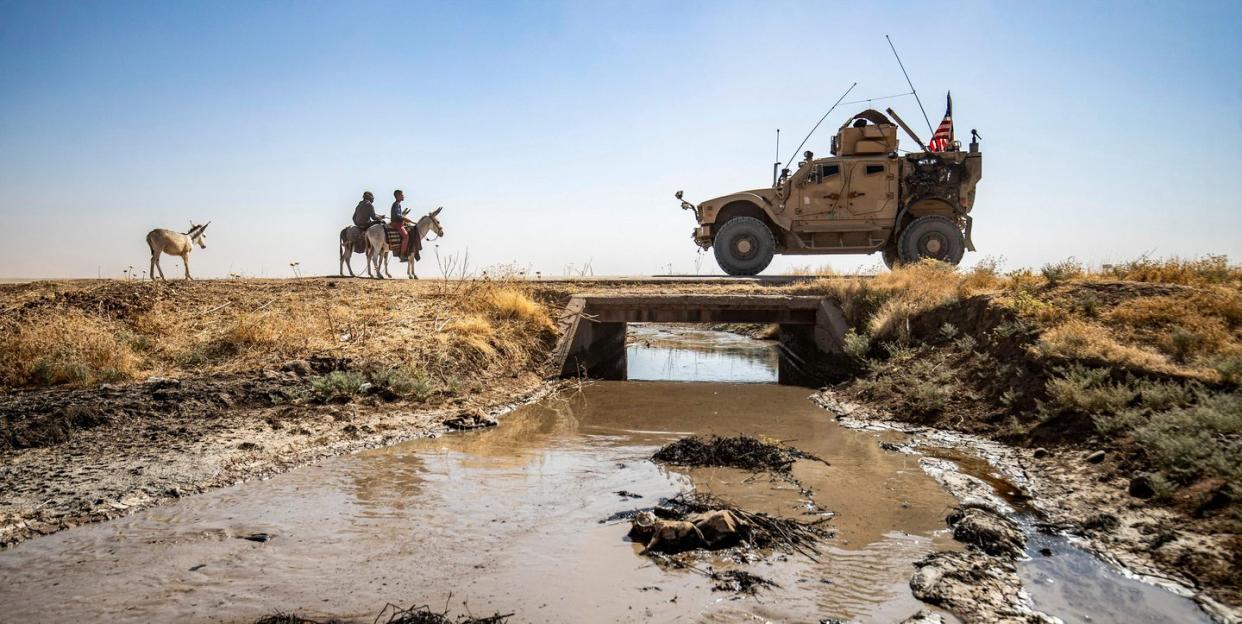
The plan to profit from a war-torn piece of disputed land in the Middle East was born in August 2018, over a leisurely lunch at a southern-food restaurant in Cary, North Carolina, named Lucky 32. As James P. Cain, wearing a crisp blue blazer, dug into a platter of his favorite dish, creamy shrimp and grits, James Reese—strong chin, high-and-tight military haircut—sat across the table and talked.
Cain was a former National Hockey League executive and, from 2005 until 2009, the U.S. ambassador to Denmark. “Gucci Ambo,” James Reese liked to rib. Reese, a retired Delta Force commander for the U.S. Army, now owned TigerSwan, a security outfit that was running a protection detail for a State Department subcontractor in Raqqa, the former capital of the Islamic State. The company’s tagline: “Solutions to Uncertainty.” Reese had just returned from northeastern Syria, where he had met with the leader of a U.S.-backed fighting force. The group of militias, known as the Syrian Democratic Forces (SDF), had been a cudgel against ISIS, which had ruled over large swaths of the region and funded its tyranny with the oil that was discovered there in the 1950s. Formed in 2015, the SDF was also a central player in the Syrian civil war—ignited as part of the Arab Spring protests in 2011 and involving dozens of domestic and foreign fighting forces vying for dominance. But more than seven years into an intractable conflict, the SDF still relied on its sworn enemy, the Syrian government and its autocratic leader, Bashar al-Assad, to refine and export the crude it pulled out of the ground. The little of it they could, anyway; much of the oil infrastructure had been destroyed in the fight against ISIS and now needed to be rebuilt. Reese told Cain he wanted to help the SDF develop the oil and bring it to market without first touching the hands of Assad. He faced a potentially huge windfall; ISIS had reportedly netted more than $1 million a day from that very supply. “I can’t do this by myself,” Reese said. “I need help.”
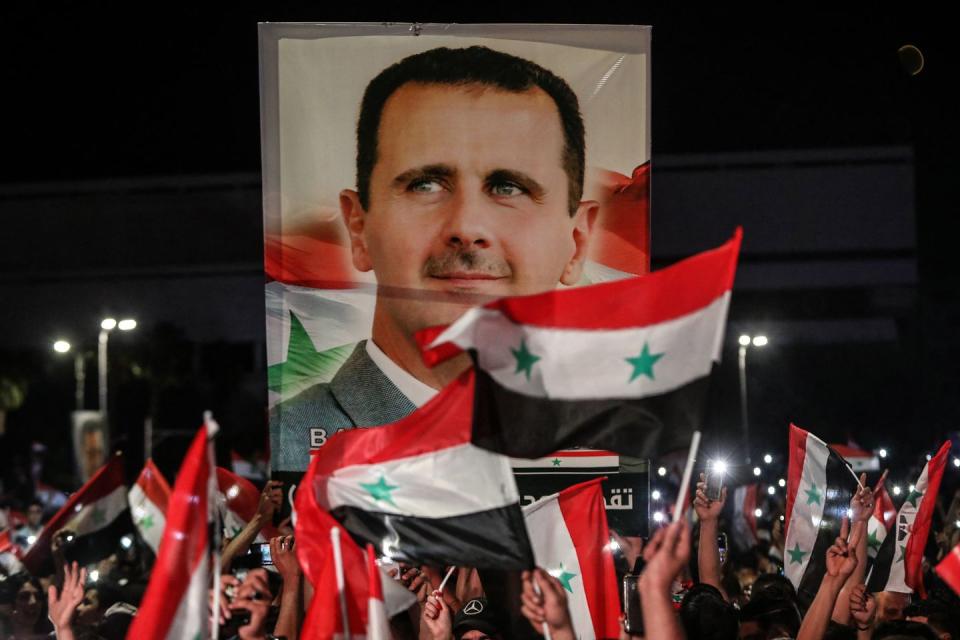
Cain was drawn to the idea for more than the money. Two years earlier, his son-in-law, Alexander Pinczowski, was in the Brussels airport when suicide bombers detonated explosives in the terminal, killing him and his sister. At least one of the attackers had reportedly trained in Syria. Cain and his daughter, among others, would eventually file a lawsuit in the Eastern District of North Carolina, seeking damages from the Syrian Arab Republic for its funding of ISIS. Reese’s proposal was another way Cain felt he could get revenge on those who’d helped kill Alex.
Cain was in. The men nicknamed the operation Project Euphrates.
At that moment, they had no idea that they would get caught in a battle between President Donald Trump, the Pentagon, and the State Department over Middle East policy. They didn’t know how many times the administration would reverse its position, or that the legal status of the fields the men were after were subject to the murky complexities of Syria’s conflict, or that, even as oil prices rose globally, the company’s efforts to bring more crude to market would prove so onerous.
What Cain and Reese knew was that to pull it off, they’d need money, a lot of it, and Western investors were off-limits—longstanding American sanctions against Syrian oil forbade their involvement.
Cain said he’d check with his contacts in Saudi Arabia and beyond.
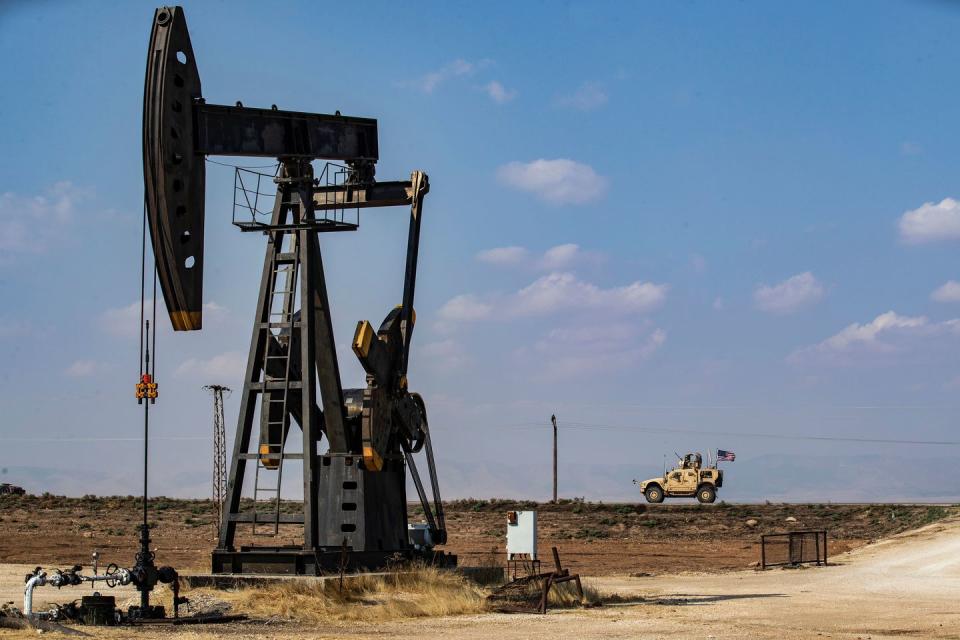
Several weeks later, Cain flew to London to rally financial support for the project. He met a representative of a Saudi wealth fund and a Kurdish SDF delegate from Syria at the two-hundred-year-old Travellers Club. The building, with its Renaissance-inspired facade, harked to the colonial exploits of Western nations in the nineteenth century and in the wake of the First World War, when those same nations brazenly carved the contours of today’s Middle East.
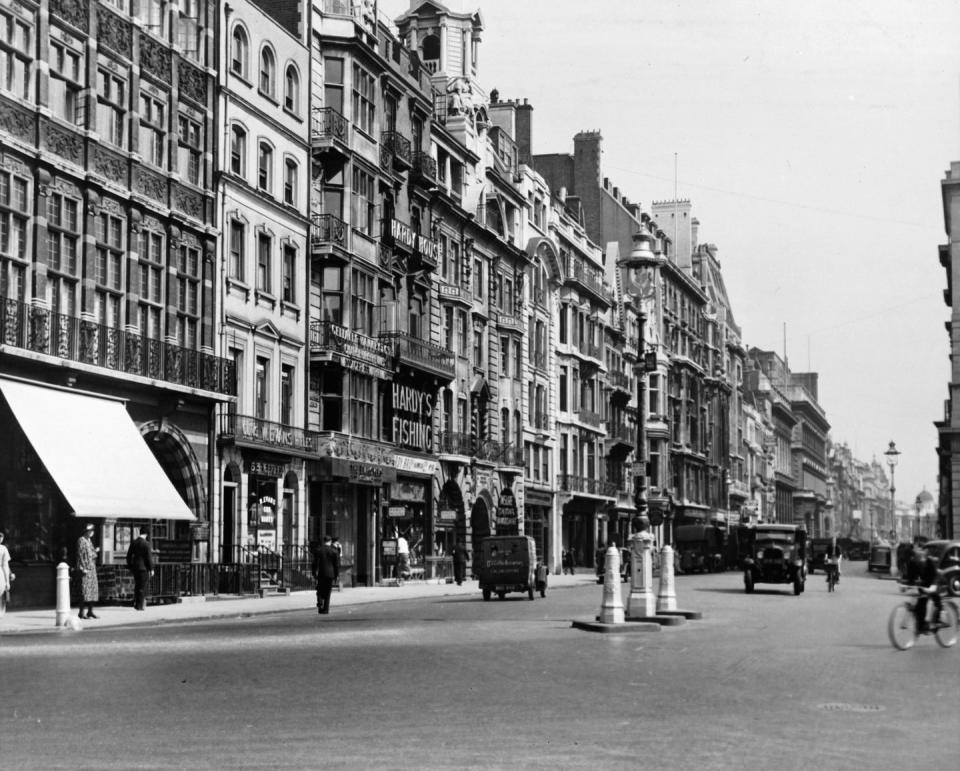
Cain met the Saudi investment rep in the club’s library, where he explained that he was in this for more than just the money—that the project could bring a modicum of justice to his family. The SDF delegate joined them in the Bramall Room, where they pondered how they could efficiently get oil out of Syria and onto the international market. Cain was looking for reassurance from the Kurdish delegate that Project Euphrates would have the support of northeastern Syria’s political and security forces. The men moved to the adjacent Map Room, which contained a yawning collection of maps and travelogues in every nook and, on the walls and in glass cases, maps highlighting the colonial journeys of men across distant seas. On charts of Syria’s oil and gas pipelines in place before the start of the civil war, they traced the contours of a potential business plan.
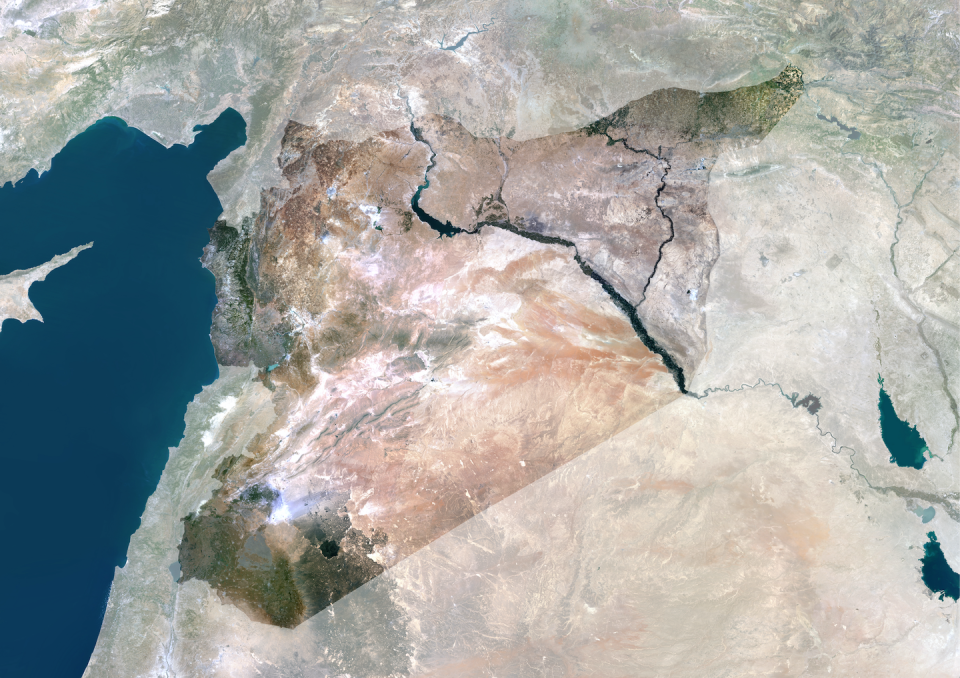
Though the Saudi wealth fund did not end up playing a role in the project, the representative made one lasting suggestion. “You ought to hit up my old friend John Dorrier,” he told Cain.
Gulfsands Petroleum, a company Dorrier founded, had signed a contract for parts of northeastern Syria that had not been leased to a foreign company in decades. But since 2011, after the civil war began and the EU imposed sanctions, that agreement had been worthless. When Cain reached out, Dorrier quickly agreed to join the team. They came up with a new name for their fledgling company: Delta Crescent Energy. Cain, Reese, and Dorrier nicknamed themselves the Three Amigos.
In December, the Three Amigos crossed a pontoon bridge spanning the Tigris River from northwestern Iraq to northeastern Syria. Cain was hauling his leather briefcase and Samsonite suitcase topped with a blue neck pillow.
A few hours later, they reached Rmelan, a major hub of Syria’s oil industry. About three hundred wells stippled the town. At their lunch at Lucky 32, Cain and Reese’s confidence had been at an all-time high. The strategy seemed clear. But since then, and with Dorrier now onboard, their mandate vacillated: Would Delta Crescent rehabilitate oil fields damaged in the civil war and the fight against ISIS, or would it instead focus on increasing the quality of the oil that already flowed?
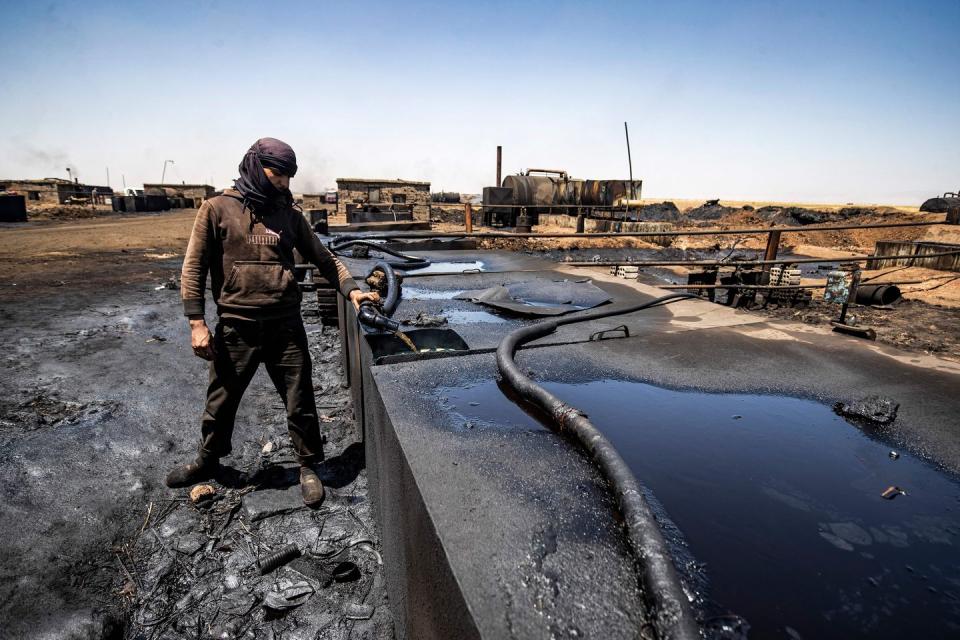
The Amigos settled on helping local oil-industry partners for a small operating fee—little more than contractors taking their cut. Delta Crescent would receive one dollar for each barrel exported. The plan was one for profit, yes, but there was also the higher purpose of humanitarian aid. Dorrier would later say, in a statement to the Associated Press in 2021, that he was involved in the project to prevent the region from falling under the control of autocratic regimes—Syria and its allies Iran and Russia. (In a statement to Esquire, Dorrier reiterated that sentiment, saying that he and Reese “remain committed to helping the people of northeast Syria.”)
Still, they couldn’t avoid the primary roadblock: sanctions. The only workaround was to request permission from the Office of Foreign Assets Control at the Treasury Department, which offered exemptions on a strictly case-by-case basis and prioritized work “related to humanitarian support.” Such exceptions were exceedingly rare. The OFAC license application would take time and a lot of money, and it was a long shot at best. The Three Amigos figured they could beat the odds.
The reality on the ground differed from the one they’d imagined at the roadside eatery in North Carolina. ISIS was still a threat, diminished but not destroyed, operating a network of supporters conducting guerrilla warfare against the Kurds. But the trio were relying on two certainties: American troops patrolling the oil fields would prevent terrorist attacks, and U.S. sanctions would prevent competition.
Hundreds of U.S. troops were protecting oil infrastructure and trained local militias to do the same. Detachments of American troops have often sought to protect perceived American interests—such as in China during the Boxer Rebellion, in Panama during the construction of the Panama Canal, and in Laos during the Laotian civil war—and sometimes these interests have included private and nongovernmental entities. Often those private-sector individuals have been wildcatters—speculative miners or well drillers. Multinational companies with cash had long bought concessions in developing nations to acquire mineral rights.
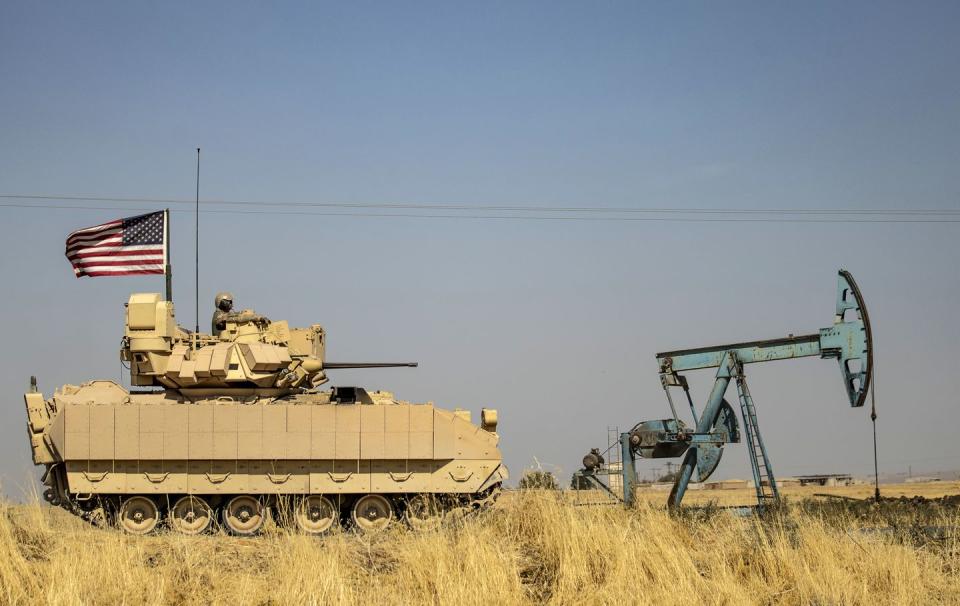
Reese had reinvented himself after leaving the U.S. Army, and maintained what he called a “service leader” approach to his work. He’d return to the conflict zones in Iraq where he’d fought, offering his experience and skill to help the locals, whose war had never ended. Delta Crescent, it seemed, had inherited that same spirit—a belief that it could rebuild a broken foreign policy.
After examining the Rmelan wells, the trio drove farther west into Syria, to Qamishli and then on to Ayn Issa, where, that evening, they met with regional oil and government officials. In the meeting, Cain emphasized that although the intensity of the fight against ISIS had waned, the elements that had created the group were still present. Not that the officials needed to be reminded. Reconstructing the region’s oil business, Cain proffered, was the key to stopping ISIS for good.
After courting local favor, Delta Crescent set its sights on Washington.
Back in Washington, a tempest was brewing. On December 19, 2018, in a video posted on Twitter, President Trump announced his decision to bring all American troops home from Syria. Soon after, he described the country as nothing but “sand and death.” Diplomats, military leaders, and government officials were furious—the administration hadn’t forewarned any of them of the president’s plan. The withdrawal was a misguided folly, officials argued, the diminishment of American partnerships abroad and a sign that Washington could no longer be relied upon to police the world.
The special envoy overseeing the Global Coalition to Defeat ISIS, Brett McGurk, stepped down in protest, writing in an email to his staff that Trump’s announcement “came as a shock and was a complete reversal of policy.” McGurk had developed the position that Syria must be defended at all costs, those close to him told me, for its geopolitical importance helped defend against insurgent Russia and China. At a press briefing earlier that month, he’d argued against withdrawal, saying, “It would be reckless if we were just to say, ‘Well, the physical caliphate is defeated, so we can just leave now.’ ”
Secretary of Defense Jim Mattis had resigned the day before McGurk. In his resignation letter to Trump, he wrote that American strength is “inextricably linked” with its alliances and partnerships. “That is why we must use all the tools of American power to provide for the common defense,” Mattis wrote, portraying “strong alliances” as essential to protecting “our interests.” These were the interests of national security, exactly how Delta Crescent and the trio behind it would shoehorn their OFAC license application through and galvanize further their political cachet. If Washington would no longer police the world, private enterprise could take its place, a belief long held and exhibited by private military contractors.
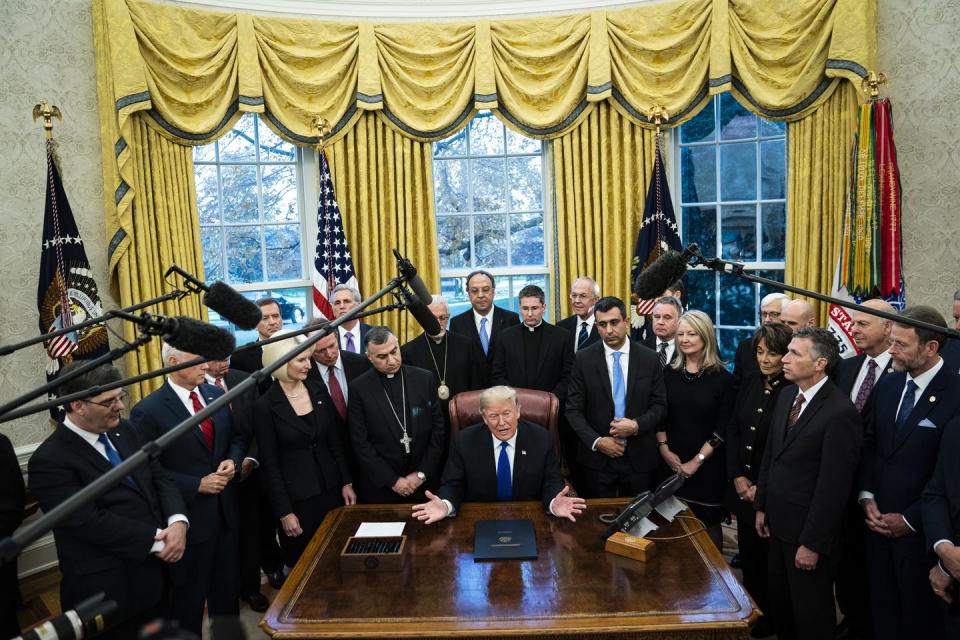
Meanwhile, according to two people familiar with the situation—a former intelligence official in the Kurdistan region of northern Iraq, and a longtime U.S. diplomat, both of whom requested anonymity to candidly discuss the deliberations—the State Department and the intelligence community were seeking ways to get private investment into Syria, anything that might give Trump reasons to stay. Nobody wanted to hand the region over to Turkey or Russia or Iran. They needed a wedge, a backup plan in case Trump continued to go against their advice and press forward with the withdrawal.
Cain knew this, so after returning from Syria, he worked to secure the necessary political and bureaucratic support for an OFAC license. A longtime GOP donor who was well connected in Republican circles, Cain sent letters to the special representative for Syria engagement, James Jeffrey, and senators and representatives who championed continued American involvement in Syria. (Reese, for his part, was a regular on-air Fox News commentator.) Cain made his case in an email to the office of John Bolton, Trump’s national-security advisor at the time, seeking assurance that the proposal dovetailed with “the administration’s objectives in the region” and saying he believed that the project would bring “justice for Alex.” (While email records show that Cain sent multiple updates on Delta’s work to Bolton’s staff, Bolton, reached by phone, denied knowledge of the company’s existence.)
Cain, Dorrier, and Reese met with Senator Lindsey Graham of South Carolina in January 2019, according to Cain. Cain says the senator was “enthusiastic and helpful.” (Graham did not respond to requests for an interview.) Cain says that Graham and Jeffrey became Delta Crescent’s biggest champions in Washington. Graham personally brought the proposal to Mike Pompeo, Trump’s then-secretary of state. Cain was encouraged after hearing that Jeffrey, the envoy to Syria, who had previously written about the need to find “alternative markets for the area’s oil,” had urged a high-ranking Syrian Democratic Council official to work with “Ambassador Cain and his group.” In May, Jeffrey testified before the House Foreign Affairs Committee that securing the oil fields in eastern Syria was an important aspect of the “huge and consequential victory” over ISIS.
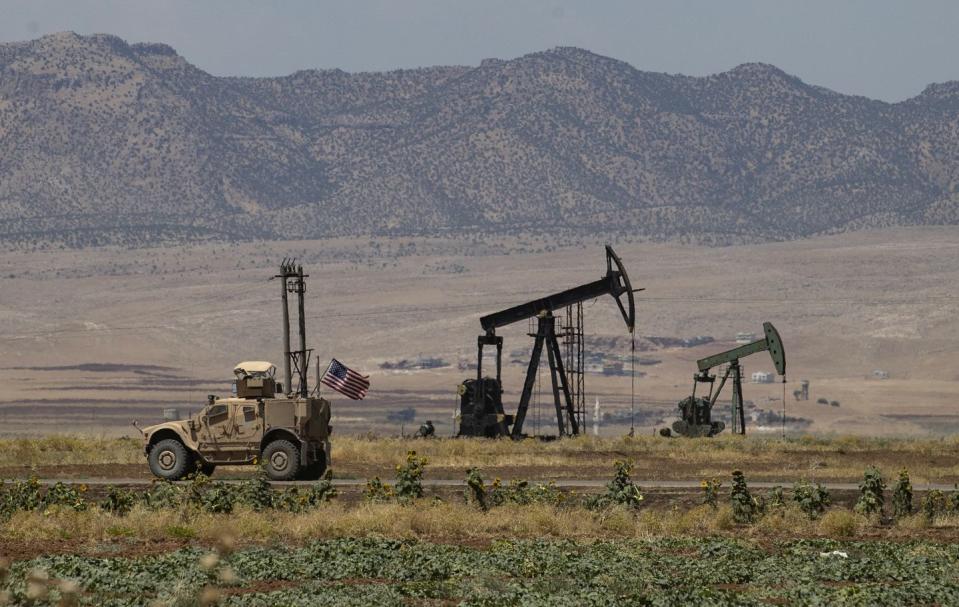
A State Department official later told the same committee that he did not know of any other companies being considered for a waiver. Cain and Reese told me they were unaware at the time of any other interested parties. But news reports and conversations with those familiar with the situation suggest that around the time the Three Amigos first visited Syria together, at least two other American-led companies had begun gathering energy agreements with local Syrian partners. The local Syrian militias expressed an interest in working with anyone who would support their cause but complained about the difficulty of working around U.S. sanctions. The Syrians often asked the U.S. to make concessions allowing them some flexibility in working with foreign investors under the sanctions. The absurdity of U.S. policy became clear: While Washington strongly endorsed its sanctions as part of its “maximum pressure” campaign against the Syrian state, U.S. troops protected the oil produced and sold to the regime of Syrian President Bashar al-Assad by the local partners and militias who, severed from international markets by the sanctions, had no choice but to deal with a president accused of war crimes.
Meanwhile, Cain hoped that Trump would change course. In December 2018, in an op-ed for The Washington Post, he wrote, “I strongly encourage the president to reconsider his decision.” If Trump wanted the U.S. to “get something” for its engagements abroad, then remaining in Syria presented “an opportunity to bring economic vitality to a people who have both the will and the natural resources to accomplish that goal.” Graham, meanwhile, lobbied the president to reconsider.
By February 2019, the administration was saying that the U.S. would leave about four hundred troops in Syria, down from more than two thousand. But many of the troops were instead chartered between northern Iraq and Syria for daily deployments, returning to a base in Iraqi Kurdistan at night, offering officials the opportunity to claim there were fewer troops inside Syria than there actually were. Cain wrote in his journal that a few hundred troops “would be sufficient to enable” Delta Crescent “to go forward.”
The Three Amigos were in a hurry. Trump’s announcement of a small U.S. presence on Syrian soil offered diplomatic cover for their work, but he could change his mind at any point. One tweet could bring their entire effort to a halt. The company formally established itself as a limited-liability company out of Delaware, and later, to pave the way for foreign investors attracted by offshore tax benefits, as DCE Trading and Marketing Ltd. out of Barbados. They retained an attorney in Washington to initiate the OFAC application.
In March 2019, just days after the Global Coalition to Defeat ISIS celebrated the seizure of the last territory held by the extremists, Cain, Dorrier, and Reese returned to Syria. They crossed the pontoon bridge on foot this time, the Tigris swollen beneath them, Cain now carrying a duffel bag. After a late lunch of chicken and rice, they drove to a safe house between Raqqa and Al-Hasakah. There, in the wake of the coalition’s victory, Cain listened to SDF fighters talk about the family members they had lost to ISIS and about the fear in the towns near the border after Trump declared his intent to withdraw in December. Delta Crescent tried to assuage their wary hosts, brandishing their connections as proof that they could obtain the necessary license and pitching their business as an incentive for the U.S. government to maintain an interest in northeast Syria for at least the next quarter century. The next day, at a meeting in Ayn Issa, an SDF official told Cain that the organization was anxious to get the region’s oil onto the international market, to wean themselves away from the Assad regime. A diesel heater slowly supplied warmth. The region was suffering from a fuel-supply crisis, making Delta Crescent’s timing even more opportune.
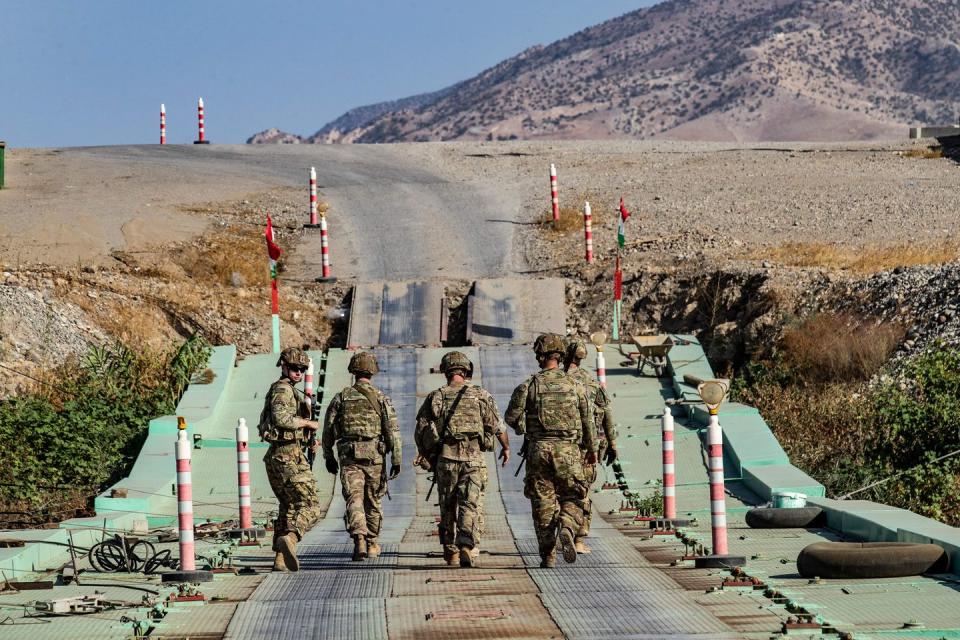
As the Amigos toured the region, they saw the signs of the years-long war everywhere: the blasted building facades, the serpentine lines outside humanitarian-aid depots. Meanwhile, in the surrounding hills, soldiers dug defensive caves and tunnels in anticipation, after Trump’s announcement, of a new wave of attacks, this time from Turkey.
At a former French cement factory now serving as a military base, the Amigos met with a State Department official who, according to Cain, “declined any opportunity to discourage us in our efforts” and “acknowledged that any effort that supported the Syrian Democratic Council and denied resources to the regime was one [the State Department] would be inclined to support.” (The State Department, via a spokesperson, did not acknowledge the meeting, which was corroborated by the independent accounts of two regional officials. The spokesperson told me the department “employs U.S. government resources to assist and advocate for U.S. business interests abroad and ensure U.S. private-sector concerns are integrated into our foreign and economic policy.” As for the oil, the spokesperson said the U.S. does not “control or manage any of those resources.”)
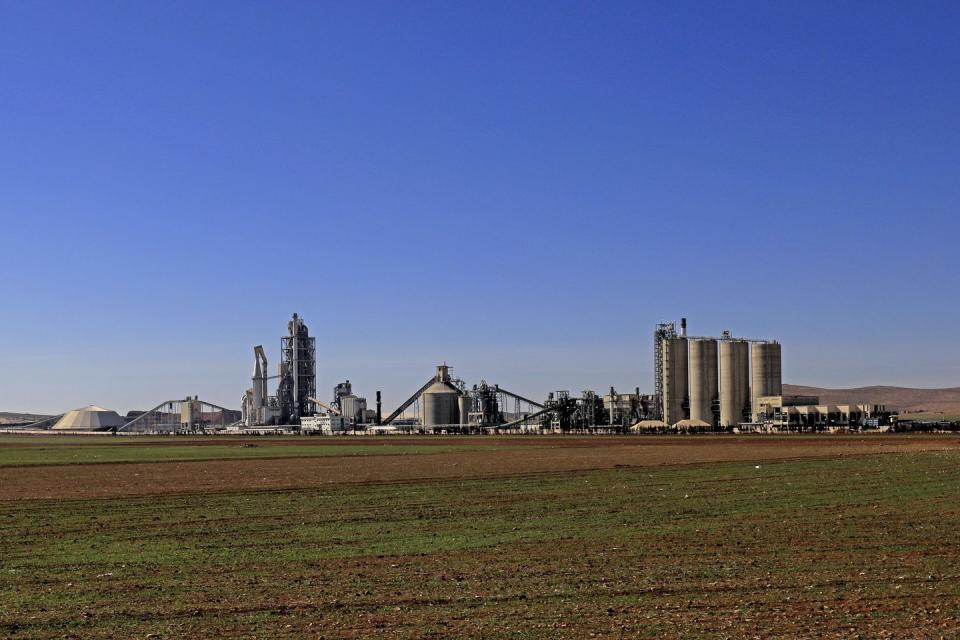
As they stood at a militia cemetery, Cain asked a local commander, “How can we prevent Islamic extremism from creeping back here?”
“First, we must have greater economic opportunity for our people,” the commander said, “so that the conditions of dissatisfaction and poverty, which give rise to hatred and resentment and a search for alternative systems, do not reappear.” It was the answer Cain wanted to hear.
At the end of the Three Amigos’ trip, after crossing back into northern Iraq clutching their newly inked agreement with the regional authorities, Cain, Dorrier, and Reese billeted themselves at the Divan, a five-star hotel in Erbil, the capital of Iraqi Kurdistan. There they celebrated with snacks and drinks from the minibar.
In September, they submitted Delta Crescent’s OFAC application to bypass the sanctions. Then they waited.
A month later, nearly a year after the Three Amigos’ exploratory trip to northeastern Syria, Trump once again ordered the withdrawal of American troops from the country. After another uproar in Congress, he once again relented. By the end of October, the administration’s mandate for the few hundred remaining troops was, in the words of the president, to “keep the oil.”
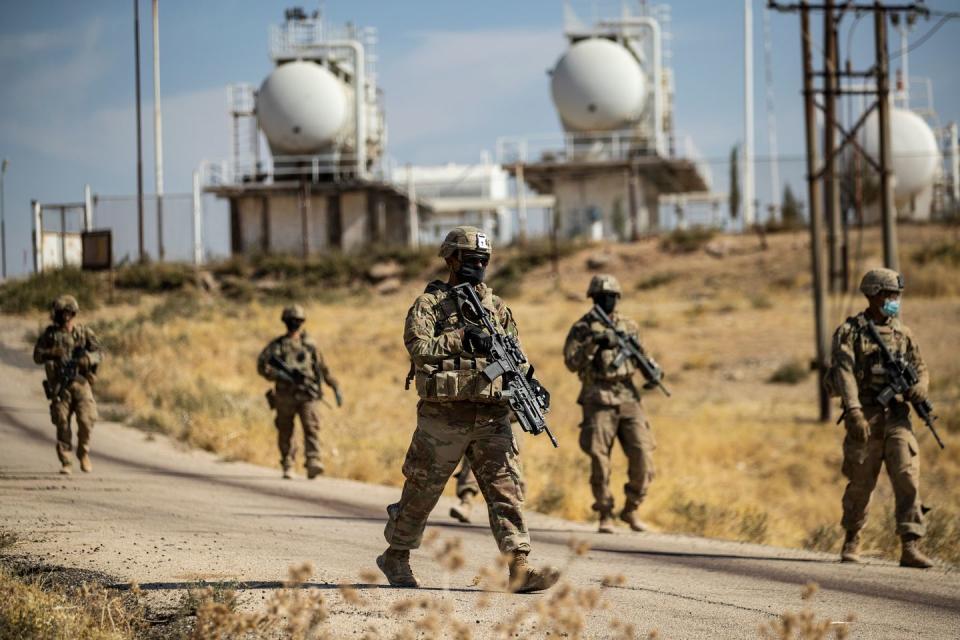
This was Delta Crescent’s chance to court broader diplomatic support. Trump’s latest reversal was a virtual blessing from Washington, another justification for their work. Trump’s pivot was likely the result of the realization that leaving boots on the ground in Syria—for oil, for local partners, for anything—offered him more than a talking point for the upcoming U.S. presidential election. It offered leverage against the Assad regime: With a troop presence on the table, Trump could (yet again) offer to withdraw in exchange for, say, the release of the American journalist Austin Tice, who, it is believed to this day, is alive and held captive by the Syrian government.
Regardless, it seemed to be playing out perfectly for the Amigos. In April 2020, as Covid swept across the globe, the Treasury Department granted Delta Crescent a one-year renewable license to operate in Syria.
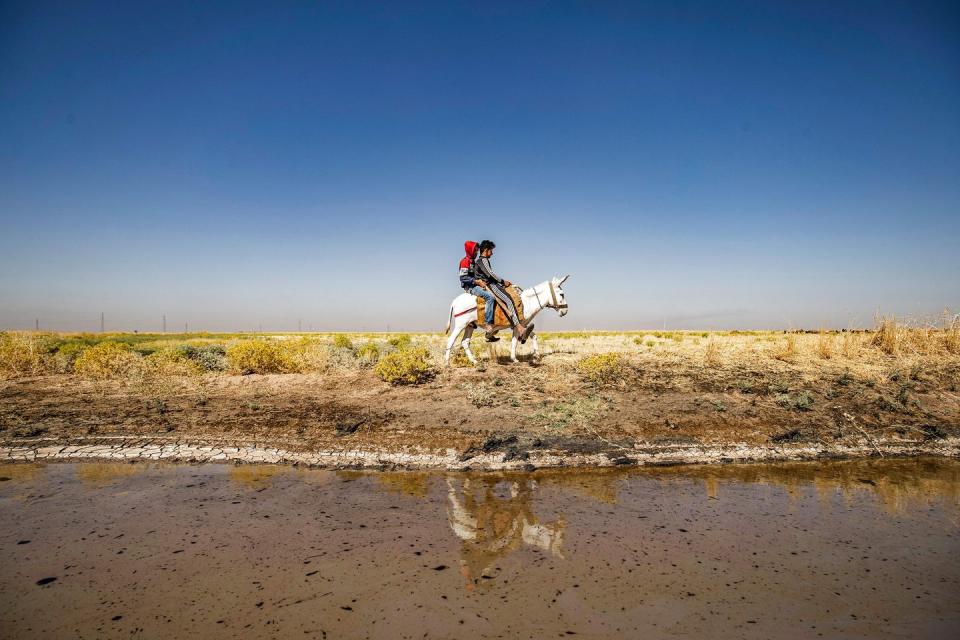
In June, the U.S. government’s Caesar Syria Civilian Protection Act—named for the whistleblower who’d first exposed the Assad regime’s killing of its citizens—went into effect. The legislation went beyond the sanctions already in place, seeking to penalize anyone in the world who did business with the Syrian government, including its oil industry—which meant the competition would have a harder time catching up to the Amigos. Later that summer, the Assad regime released a statement condemning an unnamed American oil company for “stealing” the country’s oil—so what? The Amigos now had their license. With the help of their allies in Congress, how could the project fail?
Finding buyers to export oil through a sanctioned state would be difficult in any circumstance, let alone amidst a global pandemic and a civil war. Dorrier reached out to his international industry contacts while Cain focused on other work, practicing at a law firm, working at a consulting firm, and chairing the boards of nonprofit organizations. Meanwhile, Delta Crescent’s on-the-ground operations in Syria largely fell to Reese.
In early 2021, Reese once again checked into the Divan, in Erbil. Back in the U.S., there’d been an election, an insurrection, and the inauguration of a new president, Joe Biden. A new administration meant new bureaucrats throughout the D.C. ranks—which for Delta Crescent could spell disaster, or opportunity.
Reese had become a regular at the Divan; the hotel staff called him Colonel Reese, or the Colonel, or simply Mr. James. As Reese went outside to meet a taxi passing through the security gate, the hotel staff gathered behind him. Earlier that day, employees of Jazeera Oil Company in Syria had filled several five-liter jugs of crude oil and passed them to couriers, who’d transported the goods to the Iraqi border, tossed them into plastic bags, and handed them to the taxi driver in a town by the banks of the Tigris. He’d driven the jugs the rest of the way. When Reese popped the cab’s trunk, the smell overwhelmed the small crowd. The jugs had been hastily taped in an attempt to mask the smell, but some of the oil had spilled. Labels on each jug, in Kurdish, Arabic, and English, stated the field from which the oil had originated and whether it had been blended or treated. Reese sent them to a lab for analysis.
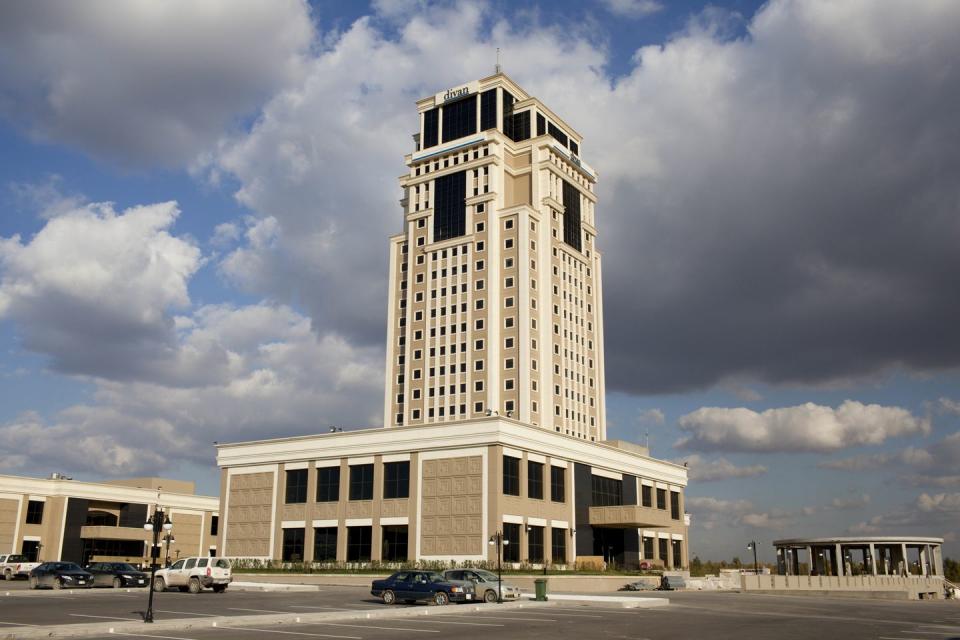
The Three Amigos were starting to splinter, with the disproportionate financial risk taken by Reese and Dorrier a point of tension. Reese later estimated that he and Dorrier invested just shy of $3 million. Cain was out only $100,000.
And there was new worry: the new U.S. administration. For all his unpredictability, Trump, they’d felt, could be relied upon to back efforts like theirs. Would Biden? Or would he seek to fully withdraw troops from Syria? Did his administration even know that Delta Crescent existed?
As the April 30 expiration date listed on Delta Crescent’s one-year OFAC license approached, Reese grew worried. At the U.S. military base in Al-Hasakah, he met with David Brownstein, the deputy envoy to Syria since the previous fall, whom he’d regularly updated on the company’s activities. Reese told Brownstein about the approximately $30,000 of solar-powered well meters he’d just received from Texas and showed him the sales agreements Delta Crescent had recently signed. Maybe Brownstein could help make the right connections with the Biden administration.
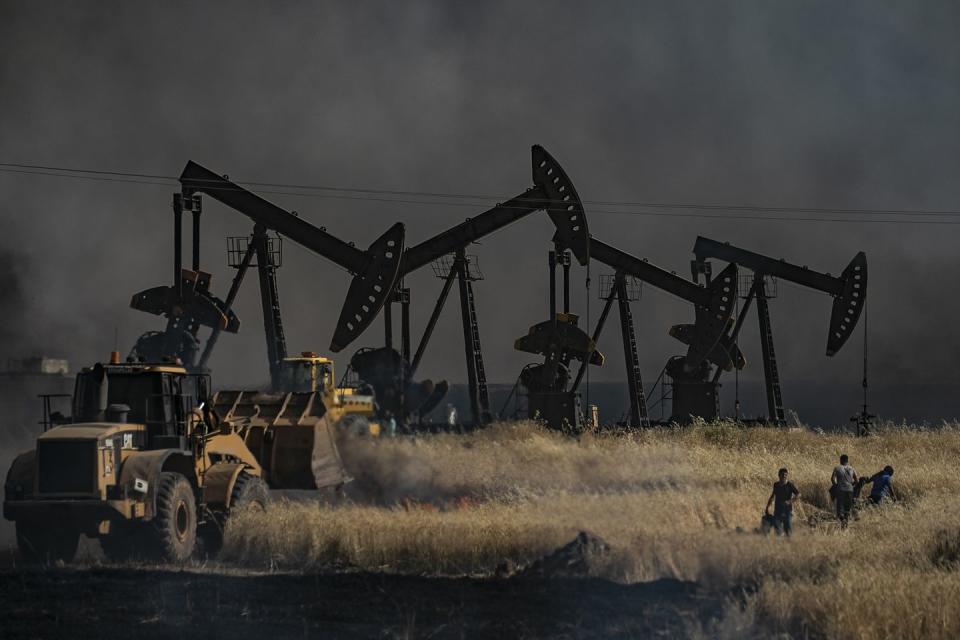
The company was granted a thirty-day extension. Then Reese caught wind of a special delegation from Washington that would soon be en route to Baghdad; after sending several messages to the U.S. embassy in Baghdad, he received word that no one there was authorized to talk to Delta Crescent. An aide texted, “You need to take all your guidance from Washington.”
Among the Baghdad delegation was Brett McGurk, the former special envoy overseeing the Global Coalition to Defeat ISIS whom Biden had just appointed to a role in the National Security Council. McGurk was also one of Delta Crescent’s biggest critics in Washington. He disliked everything Trump had touched, according to State Department and Defense Department officials who’d worked alongside him in Syria. Worse still, according to one of McGurk’s former colleagues, in a previously unreported meeting, Biden had told officials to take Delta Crescent and shut it down.
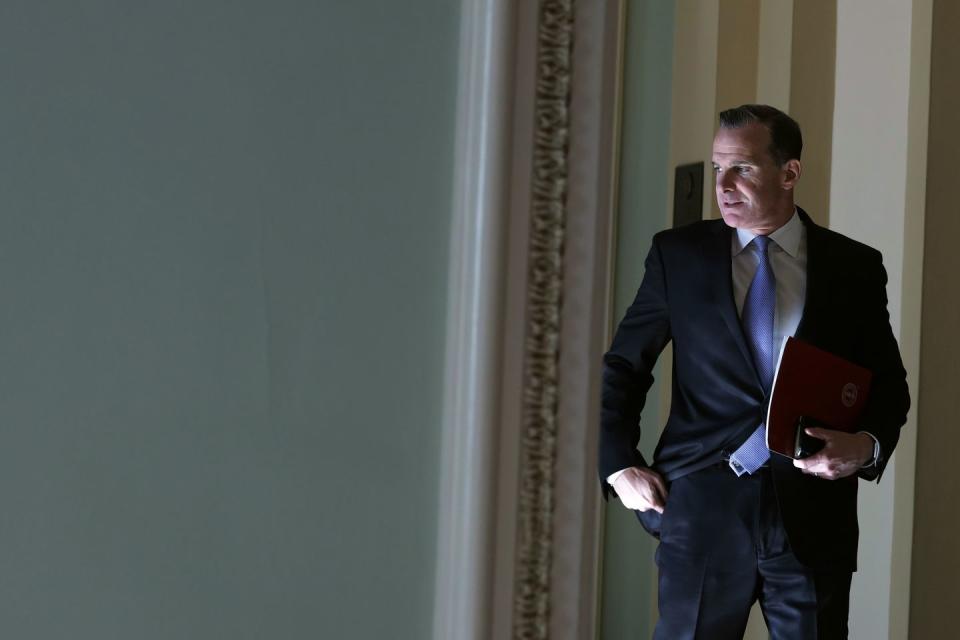
In letters to Biden and his secretary of state, Antony Blinken, Reese pleaded for empathy not only for him, a “service-disabled veteran owned company that stands with you,” but for the people of northeastern Syria.
“We had no idea this was going to crash and burn,” Reese told me. “None.”
“Frankly, fuck Delta Crescent,” the senior diplomat at the NSC told me last October. But over drinks, a Trump administration official who spent their career in the region characterized the move to cripple the company’s efforts as political, and lamented the damage it would do to the U.S. in the struggle for global power. In discussing whether there was justification for shutting down Delta Crescent, the official told me, “You just don’t fuck with an American company. Period.” What the official didn’t say is that a company’s ability to operate in Syria is finite.
And from Delta Crescent’s perspective, it seemed that the new administration was determined to oppose the project. As its initial extension was expiring at the end of last May, the company got notice of an additional wind-down period, in an apparent attempt to let the Three Amigos recoup their capital losses and sever their business in Syria.
Then, toward the end of last year, the difference in time and money invested led Reese and Dorrier to part ways with Cain. Hoping to escape what they viewed as the perception that Delta Crescent was an agent of Trump, they pivoted, renaming the venture Energy Resource Group, and started looking beyond Syria throughout the region, focusing on the marketing and exporting of crude oil for refinement. (Cain, who says he is owed money in the event that the company becomes profitable, told me Dorrier and Reese changed the name because “it was so hated in the minds of the administration,” and that “unless they go back into Syria to rebuild the oil infrastructure,” he wouldn’t have any future involvement in the company. Dorrier, for his part, said, “as long as our efforts to help are opposed by the U.S. administration, it is very difficult to make further progress.”)
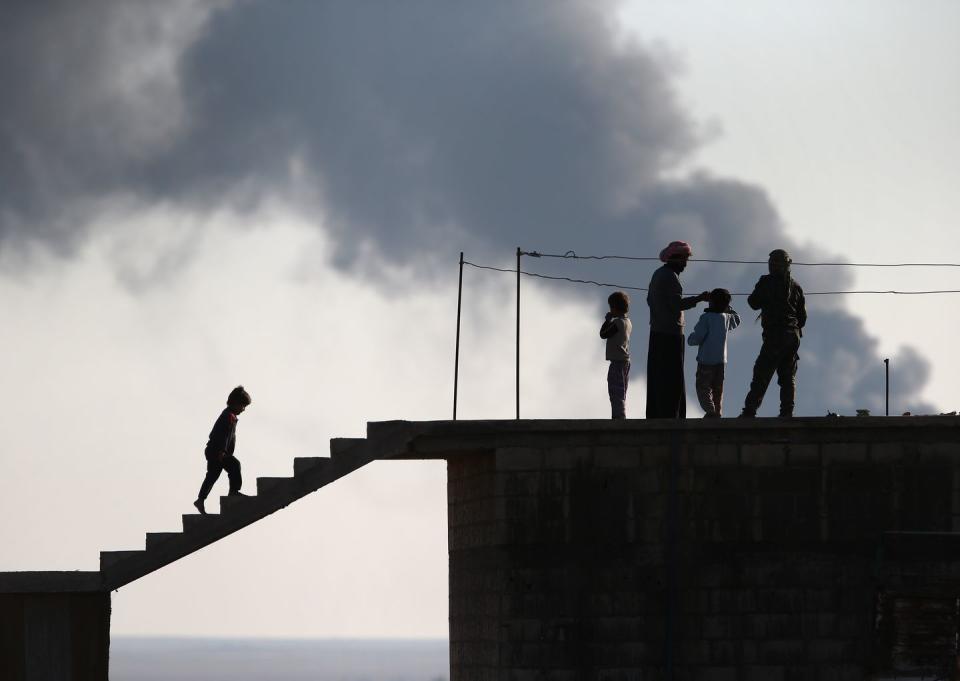
With the company on the fritz, I asked Reese what his plans were. If this project was, as he had once told me, about integrity and compassion and not ambition or profit, what would he do now? How would he support the Syrian Kurds to whom he had offered something he never delivered? He never had a good answer.
He believed his values were what brought the company up, and that what brought the company down was the U.S. government’s lack of conviction and cohesion. After Russia’s invasion of Ukraine, the Biden administration banned Russian fossil-fuel imports and eased sanctions on Venezuela. Reese took personal offense that the new administration effectively shuttered their project to bring oil to the world market and now sought the same from America's foes.
When asked where the roughly $3 million to fund Delta Crescent went, he said, “The biggest thing was plane tickets.” When faced with questions about what he and Dorrier were owed, Reese bristled. What he really felt was conned—by the government, for its waffling support, and by the media, which had lambasted the Three Amigos’ efforts ever since they were first revealed.
Delta Crescent was a proposition not unlike the opportunists who, a century and a half earlier, had followed colonizers to far-off lands. Cain, Dorrier, and Reese had hoped to thrive in a world that had not asked for or needed their help. The closest they’d come to achieving their goal was a few leaky jugs of crude knocking around in a taxi trunk.
America’s greatest export—and fallacy—is perhaps its ideology of optimism, which comes with a promise of solidarity to any who buy in. Today, that means working alongside inconvenient partners, authoritarian powers like Beijing, Cairo, and Riyadh, and remaining a central player in the world order, thereby providing some semblance of security and cooperation. But to remain reliant on these powers for energy, bent over a crude oil barrel when conflict erupts, only invites exploitation.
But this lesson won’t be learned.
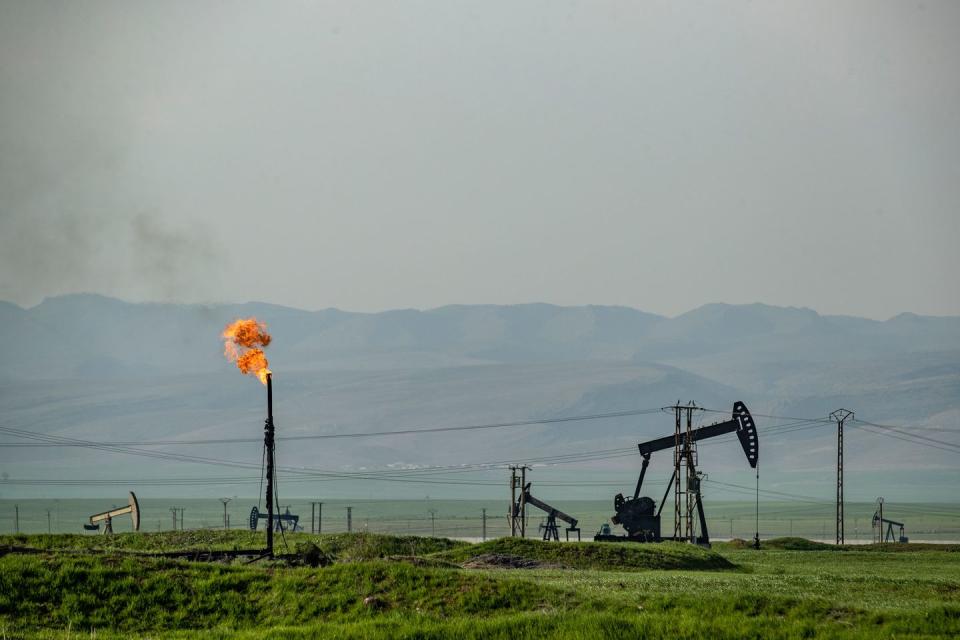
Last November, OFAC issued a new general rule for the region, a development as surprising as the license it granted to Delta Crescent. The new rule gave permission for nongovernmental organizations to operate “assistance-related investment activities in support of certain not-for-profit” activities in Syria. When Reese told me a refinery had been commissioned to operate in the region, I asked if he viewed the new organization as competition. He said no, because they were small and humanitarian-driven. “If I turn around six months from now and USAID is bringing in one of the big refinery companies,” he said, “now that’s a whole different story.”
Why not steer his own company further toward a humanitarian mandate? After all, that had been the company’s implied focus all along. “I’ve got access to nonprofits,” Reese told me rather vaguely. “But the problem is the international banking.”
In other words, he could not oblige the bottom line. And if there weren’t profits to be made, what was the point?
You Might Also Like

